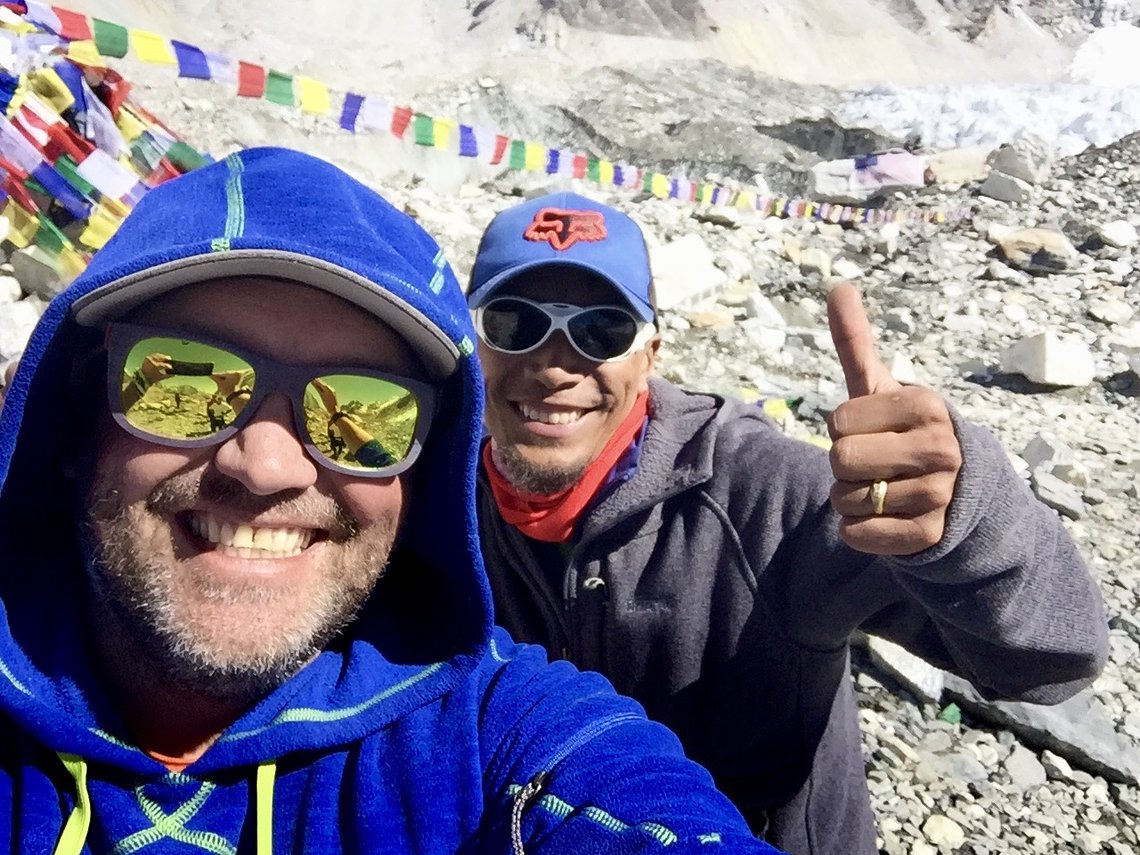Top 5 tips for acclimatising on treks like Kilimanjaro and Everest Base Camp
You need to know this...

Posted on Mon 22 Aug 2022 · by Jason Rawles
When people join us on high altitude treks and expeditions to places like Island Peak, Everest Base Camp and Kilimanjaro we always get asked the same question...
How will I respond to altitude?
While altitude acclimatisation will be very individual you can do these 5 things to massively improve your chances of not succumbing to sickness and therefore achieving your goal -
1. Move slowly and not charge around like an utter maniac. You need to slow the pace down completely. You body is incredible and it catches up by creating more red blood cells to transport oxygen. If you're running around, blowing out of your bits, you may not give your body what it needs to acclimatise. Irrespective of fitness, slow it down.
2. Rest as much as you can. As eluded to above, your body does cool things to catch up. Generally your route on the trip will allow for some "walk high, see low" which you'll read about if you go hunting around. If you have free time, relax. If you are in bed and can't sleep, don't fidget. Rest.
3. Drink water/fluids little and often. You may want to spruce up the water with some squash or electrolytes but that's personal choice. At altitude you're breathing heavier and that means more moisture leaving your body on top of sweating. Try not to drink loads in one go as your body may urinate it straight out. Using a hydration system will help having access to quick water.
4. Bring headphones or ear plugs for the night time. As mentioned above you need rest but at camps or in teahouses it can be quite noisy. Also consider podcasts, audible books etc. as a way to zone out and distract you to help get you mentally in the right space to kip.
5. Book with someone reputable. We spend a fair amount of time on expeditions helping people who have taken the cheap option and join trips who don't have all the right processes in place or people experienced at group management at altitude. We use scoring systems (Lake Louise score), have extensive experience, carry oxygen, bring all the medications to keep people safe and have doctors on standby. We are awesome at getting people to achieve their objectives but never to the extent of safety.
As a quick caveat, some times things just happen at altitude but doing the above will give you the best chance possible.
If you're worried about any personal circumstance that could impact your ability at altitude you should speak with a medical professional before exploring these kinds of expeditions.
This is just our thinking as Aspire Adventures and other thoughts and views may be out there in the digital space including use of drugs like acetazolamide or Diamox as it's commonly known as.
We hope this helps reduce some of the anxiety associated with altitude and don't forget you can book on any of our expeditions and we will hold your hand through all of these worries.
See you on the hill.
Team Aspire